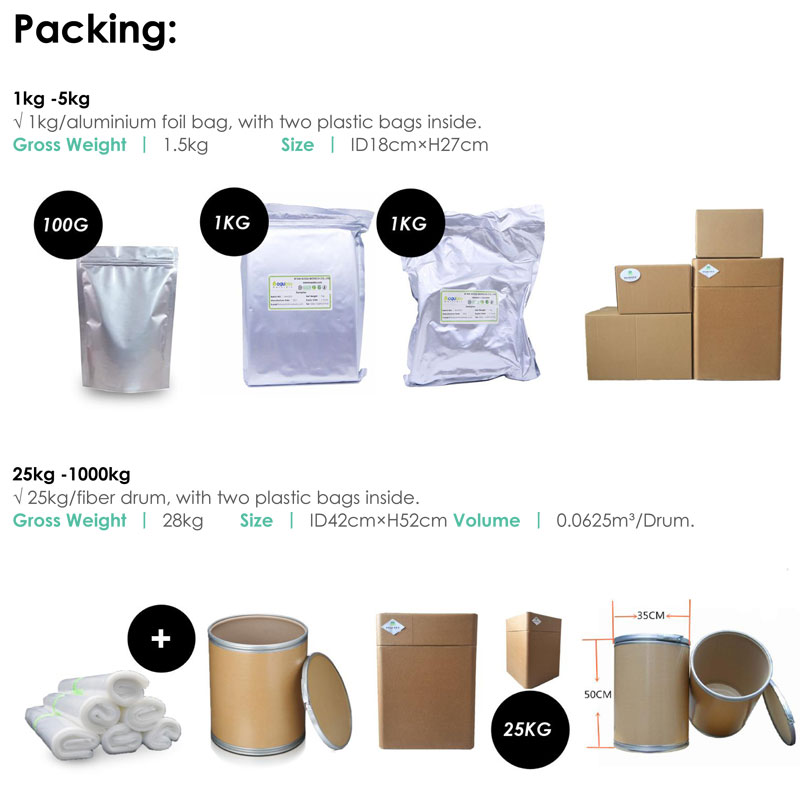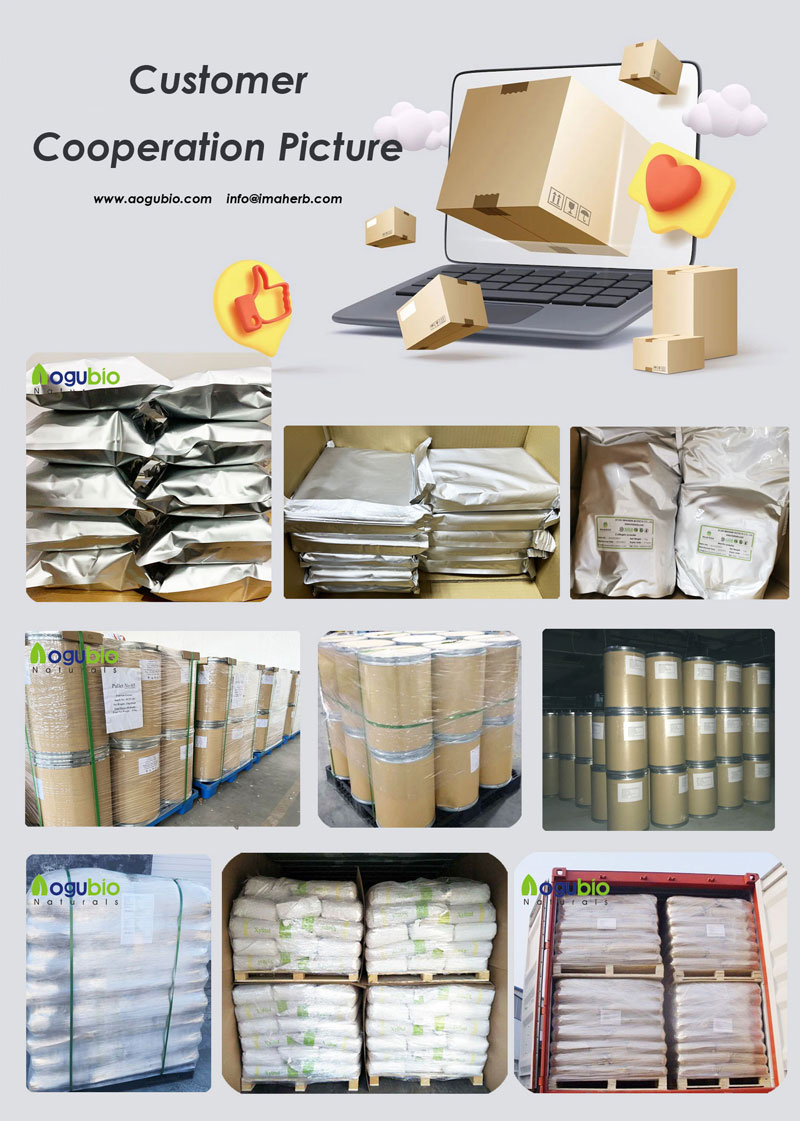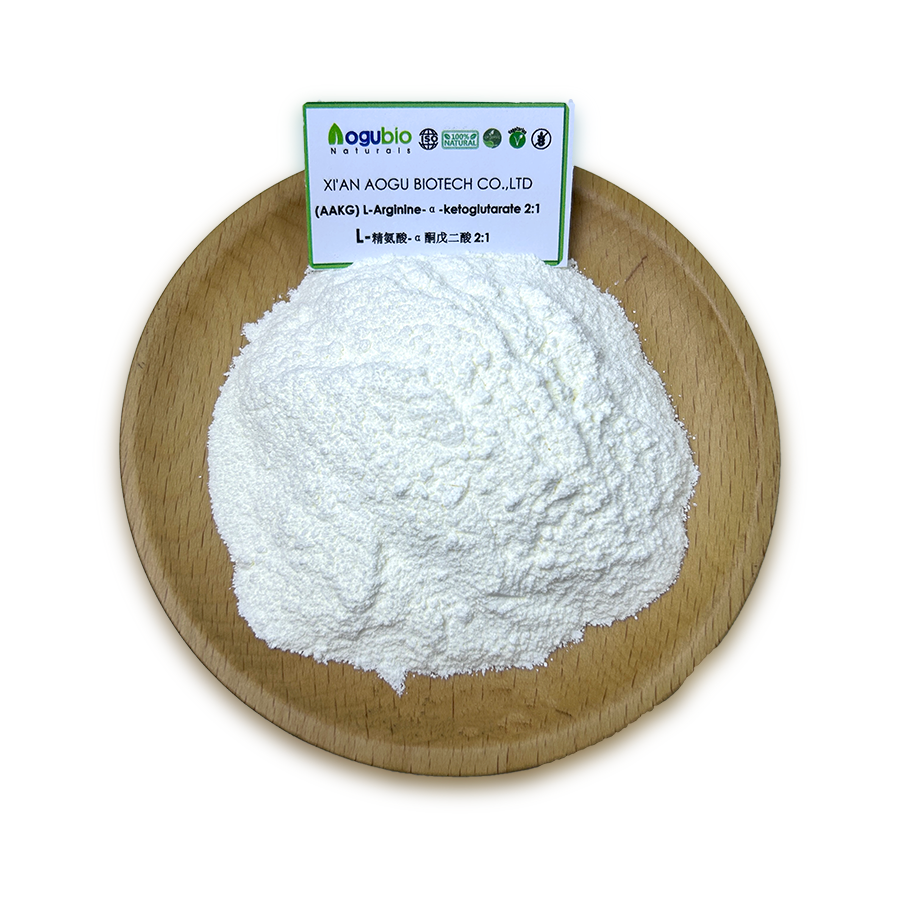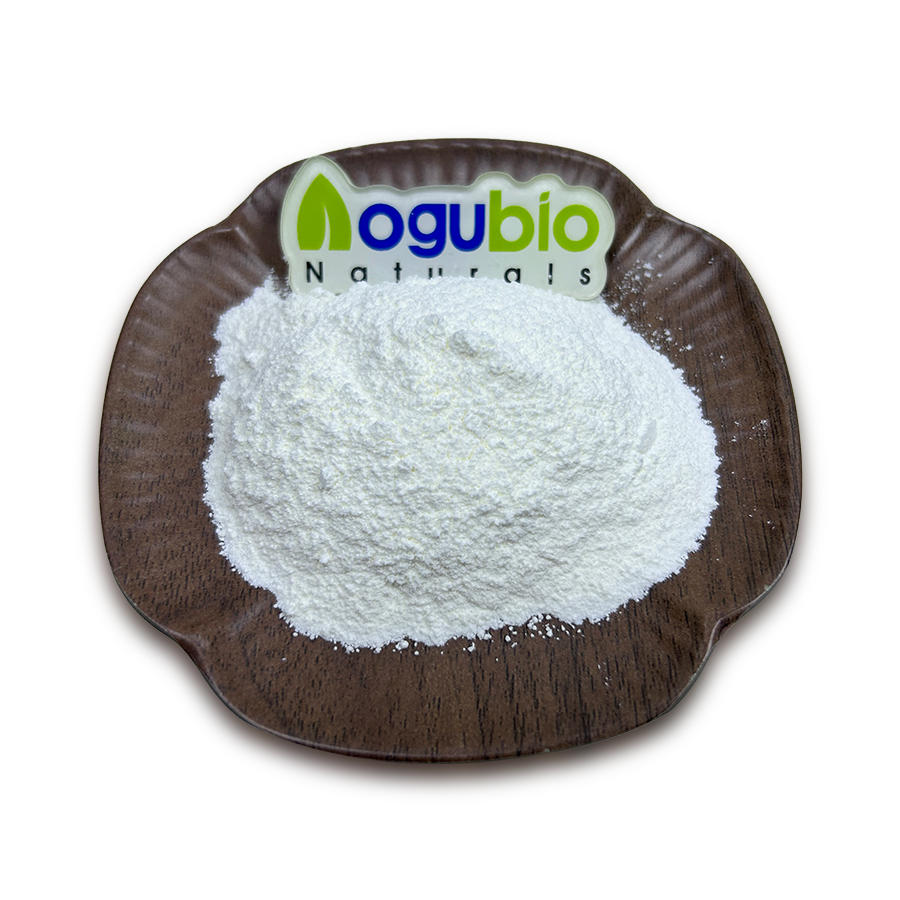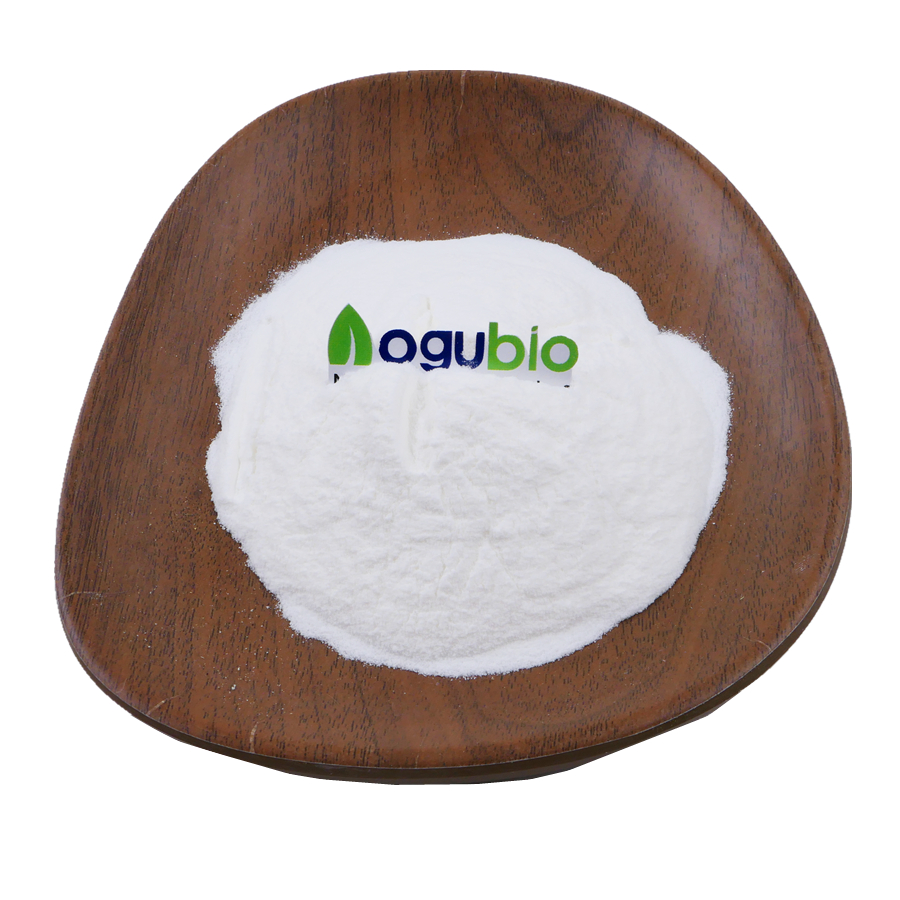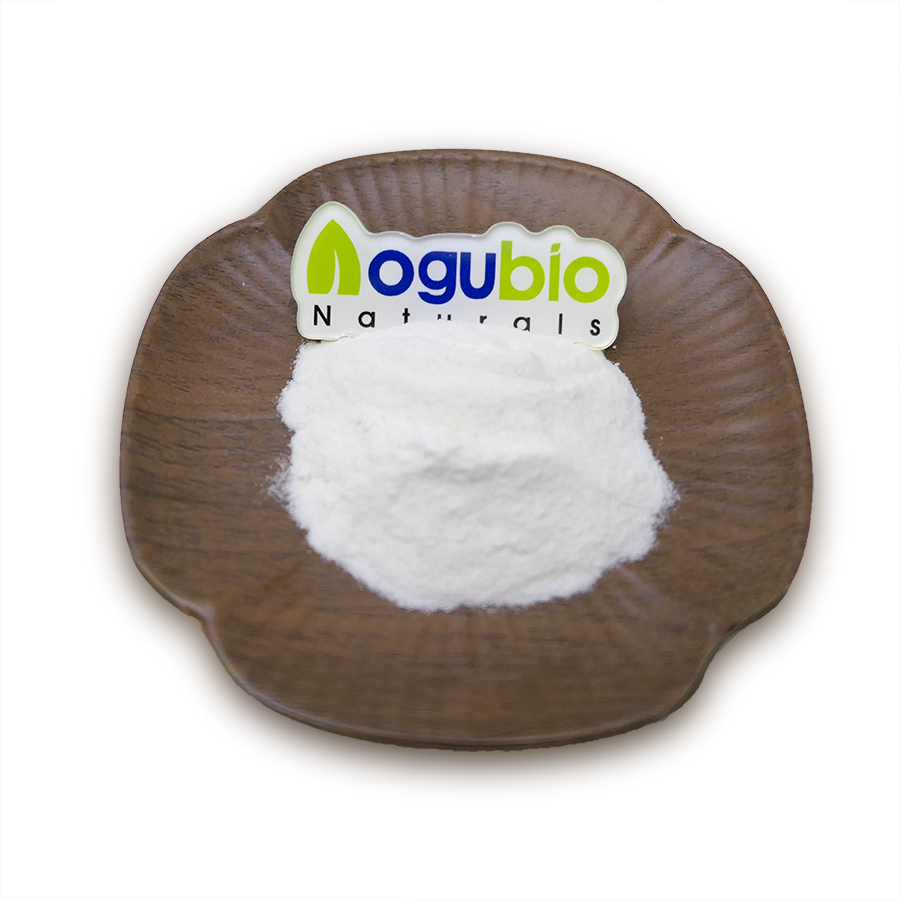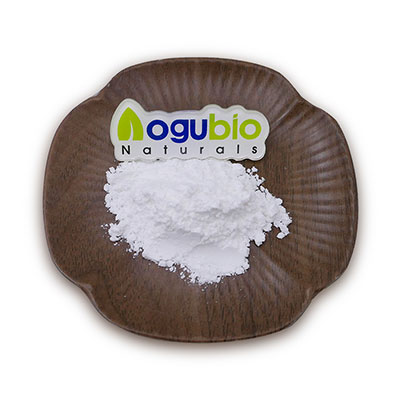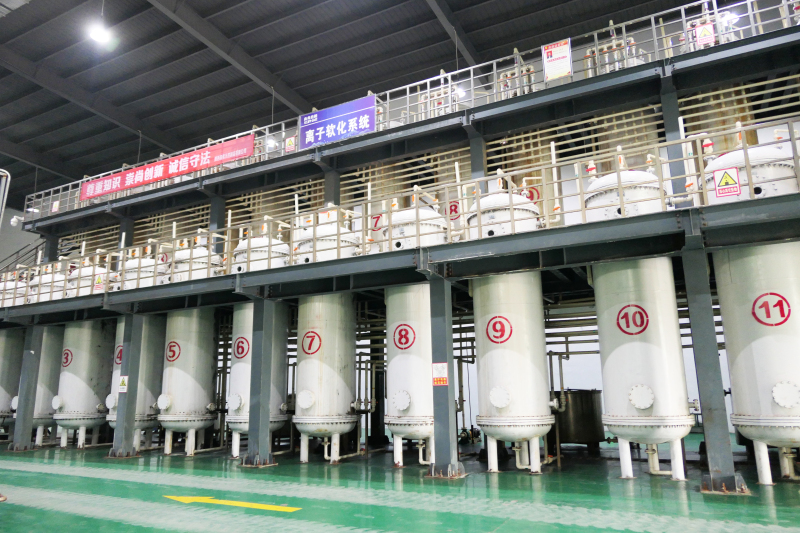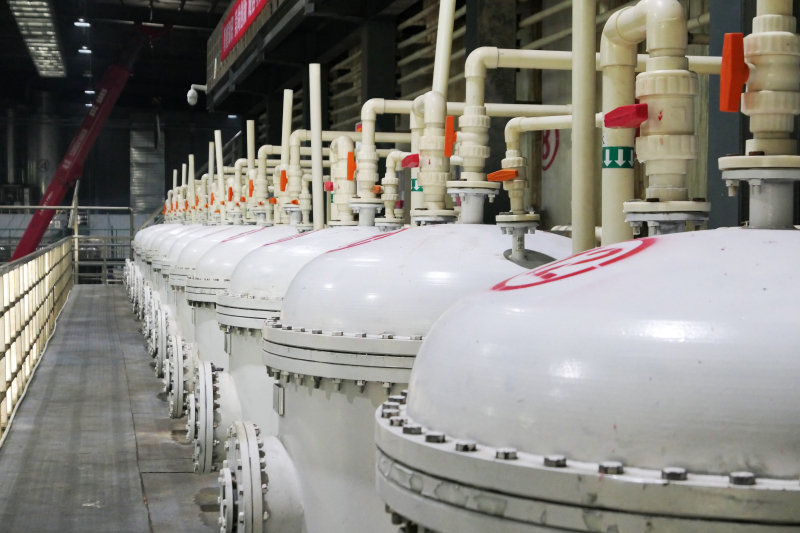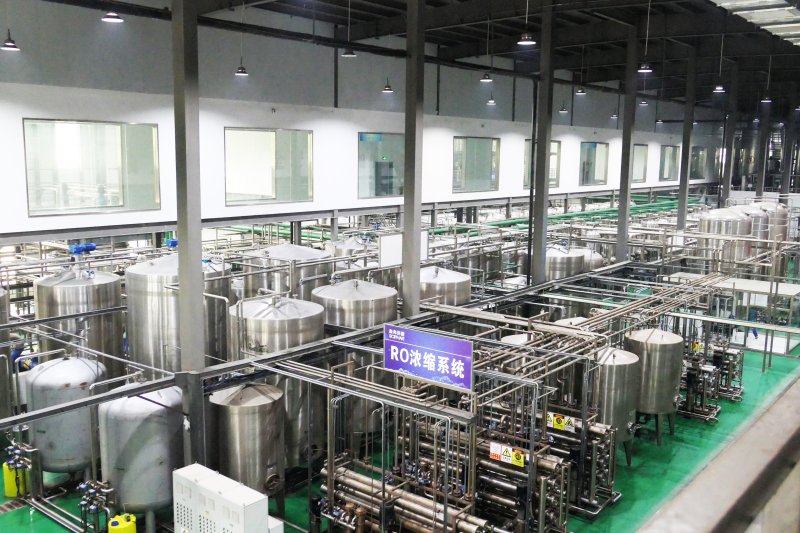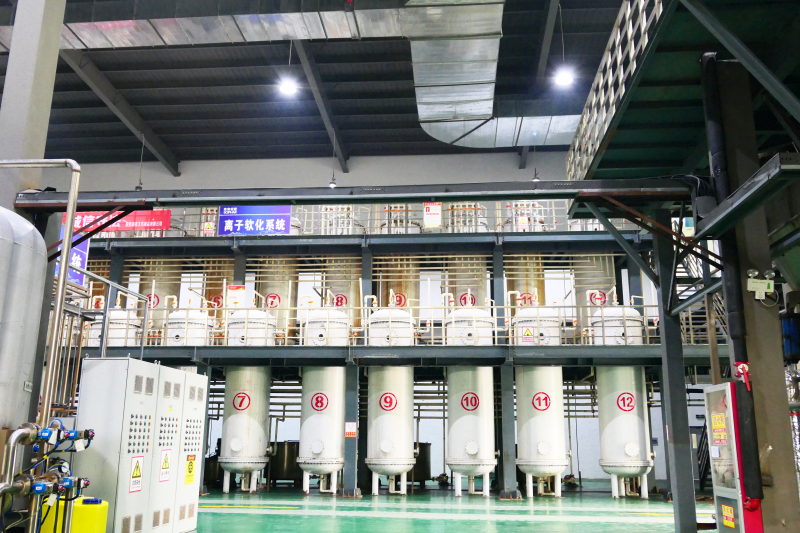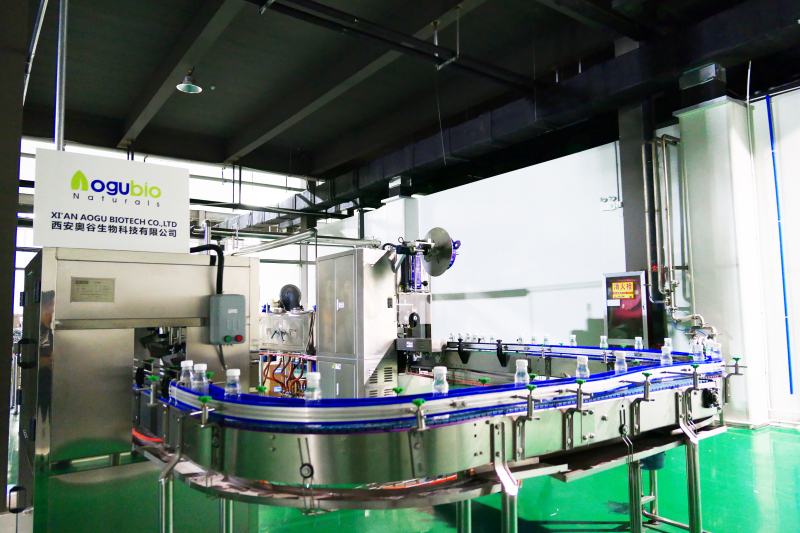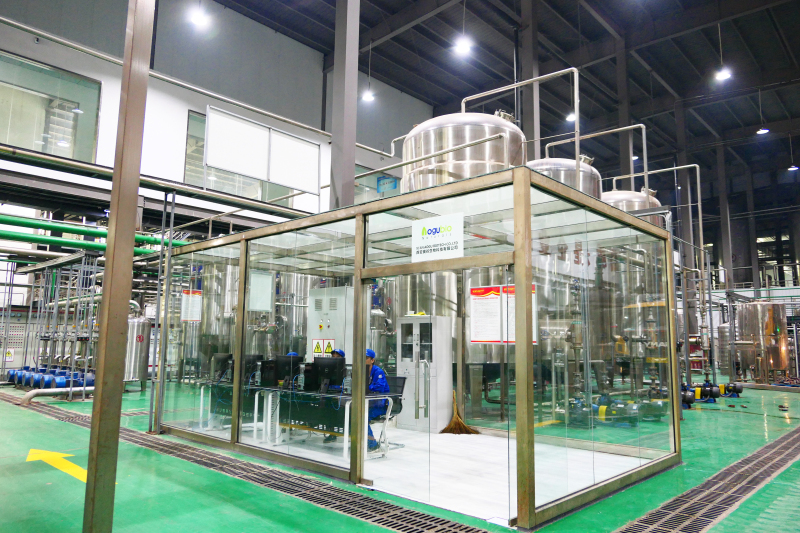Food Grade Natural 99% L-Arginine-Alpha-Ketoglutarate AAKG supplement
Product Description
L-Arginine-alpha-ketoglutarate (AAKG) is a nutritional supplement primarily composed of two ingredients: L-arginine and alpha-ketoglutarate. The following is an analysis of the main nutrients of these two ingredients:
- L-arginine: L-arginine is an amino acid and one of the building blocks of protein. It participates in a variety of biochemical processes in the body, including the synthesis of nitrogen oxides, protein synthesis, and amino acid metabolism. L-arginine is also considered a precursor to nitric oxide, which can promote blood vessel dilation, increase blood flow and oxygen delivery to muscle tissue, and help improve exercise performance.
- α-Ketoglutarate: α-Ketoglutarate is an intermediate product of the tricarboxylic acid cycle and participates in the energy metabolism process. It plays an important metabolic regulatory role in the body, helping to provide the energy needed by muscle cells. Alpha-ketoglutarate is also thought to help support muscle metabolism and repair processes.
AAKG’s 2:1 ratio means there are two L-arginines and one alpha-ketoglutarate in each molecule. This ratio is considered the most effective because it provides enough L-arginine to promote nitric oxide synthesis while providing enough alpha-ketoglutarate to support energy metabolism.
In general, the main nutrients of AAKG are L-arginine and α-ketoglutarate, which are respectively involved in the synthesis of nitrogen oxides and energy metabolism in the body and are considered to help improve exercise performance and promote muscle grow.
BASIC ANALYSIS
| Articles | Specifications | Results |
| Appearance | White to yellow crystalline power | White to yellow crystalline power |
| Assay | 98.0%-102.0% | 100. 10% |
| Assay of L-Arginine | 65.5%-69.0% | 66.55% |
| Assay of α-ketoglutarate | 26.5-29.0% | 27.40% |
| Specific optical rotation[a](8g/100ml 6N HCL) | +16.5o ~ +18.5o | +18. 1o |
| pH(10/%H2O) | 5.5-7.0 | 6.0 |
| Hydrate | ≤6.8 | 6.1 |
| Chloride | ≤0.05% | 0.03% |
| Loss on drying | ≤1.0% | 0. 16% |
| Residue on ignition | ≤0.2% | 0. 10% |
| Heavy metals(as Pb) | ≤10ppm | ﹤ 10ppm |
| Pb | ≤1ppm | ﹤ 1ppm |
| Iron | ≤10ppm | ﹤ 10ppm |
| Arsenic(AS2O3) | ≤1ppm | ﹤ 1ppm |
| Cadmium | ≤1ppm | ﹤ 1ppm |
| Mercury | ≤0. 1ppm | ﹤0. 1ppm |
| Bulk density(g/ml) | ≥0.5 | 0.53 |
| Particle Size | Thus30 | 100% |
| Total plate count(cfu/g) | ≤1000cfu/g | conforms |
| Yeast(cfu/g) | ≤100cfu/g | conforms |
| Mold(cfu/g) | ≤100cfu/g | conforms |
| Salmonella(cfu/g) | Negative | Negative |
| E.coli (cfu/g) | Negative | Negative |
| Staphylococcus Aureus (cfu/g) | Negative | Negative |
| Melamine and Melamine derivatives | Free | Free |
Function
L-arginine-alpha-ketoglutarate (AAKG) is a common sports nutrition supplement that is a mixture of L-arginine and alpha-ketoglutarate in a 2:1 ratio. It is widely used among athletes and fitness enthusiasts to enhance athletic performance and promote muscle growth. The following is a professional introduction and analysis of AAKG:
- Promote the synthesis of nitrogen oxides: L-arginine is the precursor of nitrogen oxides, and α-ketoglutarate participates in the energy metabolism process. AAKG is thought to increase the synthesis of nitric oxides, thereby increasing vasodilation, promoting blood flow and oxygen delivery to muscle tissue, helping to improve exercise performance.
- Improved muscle strength and endurance: Some research suggests that AAKG supplementation may help improve muscle strength and endurance, allowing athletes to train for longer periods of time or at higher intensity.
- Promotes muscle growth and repair: AAKG is thought to help promote muscle protein synthesis, thereby promoting muscle growth and repair, which may be beneficial for bodybuilders and athletes to increase muscle mass and recovery speed.
